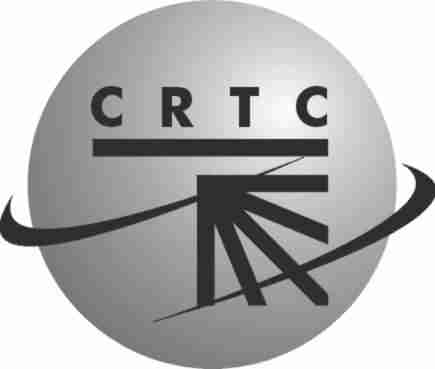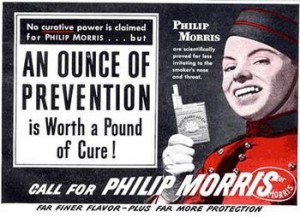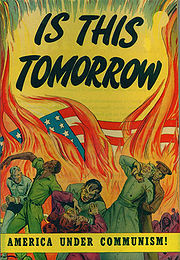You always know when a new year has arrived when another North Carolina legislator files a Big Telecom industry-written bill attacking community-owned broadband.
This year, the laughably-named “Act to Protect Jobs and Investment by Regulating Local Government Competition With Private Business” comes courtesy of Rep. Marilyn Avila (R-Wake County), a former manager of the conservative think tank John Locke Foundation.
H.129 is remarkable for its legislative micro-management, coming from someone who claims to oppose big government meddling.
Among its requirements:
- Demands a public accounting for every community broadband network;
- Limitations on service to strict city boundaries;
- Prohibits contractual agreements with apartment and condo building owners that mandate municipal service for individual residents;
- Bans advertising and “promotion” of community-owned broadband networks on Public, Education, and Government access channels;
- Shall not price any component of its service below cost;
- Requires payment of a special tax equal to the amount of local property taxes and/or fees normally exempted for local government enterprises;
- Requires permission through an extended hearing process to win permission before delivering service to any area deemed “unserved”;
- Demands a laundry list of pre-conditions before obtaining permission to shop for financing.
Avila doesn’t mind putting government all over the backs of community-owned networks if they happen to compete with her friends at AT&T, Time Warner, and CenturyLink.
Let’s review this exceptionally provider-friendly piece of protectionist legislation.
First, Avila’s demand for an open accounting of community broadband projects provides a treasure trove of business intelligence for any competitor. They can demand to open the books and gain critical subscriber information — what residents pay for service, who gets the service, and how much it costs to provide. That’s pure gold for targeted marketing campaigns to win back customers with special offers municipal providers are banned from offering.
We’re calling a foul ball because Avila’s “fair and level playing field” doesn’t have room for fair play. Private providers get to keep the secrets community-owned network are forced to reveal. That, by design, puts municipalities at a competitive disadvantage and could help drive them out of business. Remember, these networks are financed by privately obtained bonds, not taxpayer dollars. Shouldn’t any such provider have the right to keep its business strategies secret?
Second, if banning mandatory service for renters and condo owners is such a great idea, why does Avila only limit it to community-owned networks? The record is clear — private providers are increasingly signing agreements with property owners mandating cable television fees for residents. Apparently Avila’s concept of fairness doesn’t include the actual companies found guilty of raising the rent.
Third, Avila bends over backwards for her cable and phone friends by tying the hands of municipal providers who want their networks to be commercially successful. Time Warner has no problem injecting endless promotions for its own services not just on a handful of channels, but on virtually every channel on the lineup, often during nearly every commercial break. Can municipal networks ban advertising from AT&T and Time Warner? Of course not. And the definition of “promotion” specified in Avila’s ad ban is vague. If a town government meeting talks up the success of a community-owned network, has Avila’s law been broken? Apparently censorship by government mandate is a-OK as long as it doesn’t target her Big Telecom friends.
 Avila’s ban on setting pricing below cost is another giveaway to Time Warner and AT&T, who routinely deliver retention and new customer promotions that could be temporarily priced below cost to secure or maintain a customer relationship for a limited period of time. Of course, Avila doesn’t require either company to open their books to find out exactly what it costs companies to provide these special pricing packages. No municipal provider seeks to price service at a rate that puts the project out of business. Time Warner Cable has been accused of delivering below-cost retention pricing to departing customers in Wilson, where GreenLight has been poaching the cable company’s customers for more than a year. Avila’s hand-tying provision allows some companies in the marketplace to keep pricing flexibility while the municipal provider is forced to price service according to a state-dictated formula. John Locke would be turning over in his grave if he heard about this planned economy-pricing.
Avila’s ban on setting pricing below cost is another giveaway to Time Warner and AT&T, who routinely deliver retention and new customer promotions that could be temporarily priced below cost to secure or maintain a customer relationship for a limited period of time. Of course, Avila doesn’t require either company to open their books to find out exactly what it costs companies to provide these special pricing packages. No municipal provider seeks to price service at a rate that puts the project out of business. Time Warner Cable has been accused of delivering below-cost retention pricing to departing customers in Wilson, where GreenLight has been poaching the cable company’s customers for more than a year. Avila’s hand-tying provision allows some companies in the marketplace to keep pricing flexibility while the municipal provider is forced to price service according to a state-dictated formula. John Locke would be turning over in his grave if he heard about this planned economy-pricing.
Rep. Avila can certainly no longer claim to be for low taxes, because her bill would effectively raise them for community-owned networks. Again, since these projects are almost always funded from private bond markets, not public tax dollars, slapping complicated tax formulas on municipal providers while continuing to permit special tax break deals for private companies (such as “payment in lieu of taxes” or special tax breaks/grants for Time Warner in return for job creation) shouldn’t work for most small government conservatives. Shouldn’t they support lower taxes for everyone? Instead, Avila seeks to hamper community network business models by punitively sticking them with taxes she would otherwise oppose for commercial providers.
Avila’s support for smaller, less regulatory-minded government must also be called into question with this bill’s ridiculously complicated regulations for serving unserved areas of the state (which also grants a special window to private providers to protest, which they will certainly do in just about any area of the state even partially suitable for a future project). Her bill even demands 60-day delays, custom-tailored to allow industry lobbyists to gin up opposition and demagogue projects. Since a commission will be involved in the decision making process and has to take into account opposition from private providers, all of the benefits of Avila’s legislation flow to the cable and phone industry, none to community-owned networks or individual consumers that will ultimately benefit from better service at lower prices.
Avila destroys her own “level playing field” argument in language within her own bill:
“The city or joint agency making the application to the Commission shall bear the burden of persuasion.”
In other words, Avila offers a “level playing field” with an 11-foot electrified barbed wire fence surrounding it. Unfortunately, municipalities won’t be the only ones shocked by Avila’s cable and phone company protectionism.
Ordinary consumers in communities like Wilson, exempted from the relentless annual rate hikes from Time Warner because of the presence of a municipal competitor won’t get to keep the savings if Avila has anything to say about it. She wants you to pay full price for your cable service, and pay higher prices year after year.
Her claim that the legislation will somehow “protect jobs and investment” is specious at best. Time Warner has not exited Wilson or Salisbury — two cities with a community-owned competitor. In fact, Time Warner is on record welcoming competition. In reality, these companies simply don’t welcome new choices from those providers that will actually deliver savings and better service to customers.
The cable industry’s flagellation against projects like GreenLight and Fibrant flips between calling them financial boondoggles not worth bothering about to unfair competition that will harm private investment. AT&T’s protests, in particular, ring the most hollow. This is the same company that wants deregulation to make it easier for new players like themselves to enter the marketplace. Their U-verse service enjoys the benefits of statewide video franchising, which removes accountability to local governments. Yet this same company lobbies for increased bureaucracy and regulation for some of their potential competitors. Avila is only too happy to oblige.
As with every other piece of legislation we’ve seen on this subject from North Carolina, it’s yet another custom-written favor to big cable and phone companies and an attack on consumer interests across the state. Generous campaign contributions from the telecom industry pay off only too well when state legislators allow these companies to write the bills designed to protect their turf.
For Time Warner Cable, the costs associated with sending selected legislators and their families to a recent delicious BBQ event in sunny San Diego to attend a sham “conference” sponsored by a corporate front group shows there are plenty of favors to be had all around, just as long as you support the company’s legislative agenda.
Fighting this year’s anti-consumer legislation will be tougher than ever. For the first time in 112 years, the corporate friendly North Carolina Republican party won control of the General Assembly. For many members, the free market can do no wrong and anything government touches is bad news. Many will reflexively support Avila’s legislation. But any underserved county in the state knows the truth about today’s broadband in rural North Carolina — if local communities can’t step up and deliver the service, nobody will. For these representatives, Democrat or Republican, concern should run high that Avila’s bill assures these areas of years of high prices, poor or no service, and status quo protection designed to keep the market exactly as it is today. Considering how poorly North Carolina stands in national broadband rankings, standing still should never be an option.


 Subscribe
Subscribe





















